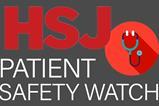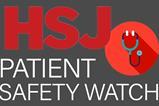HSJ is now hosting the Patient Safety Watch newsletter, written by Patient Safety Watch chief executive James Titcombe.
Good afternoon and welcome to this edition of the Patient Safety Watch newsletter.
Former chief medical officer Sir Liam Donaldson once said: “To err is human, to cover up is unforgivable and to fail to learn is inexcusable.” Those words came to mind when I read this sad and disturbing story – reported last week in The Guardian – involving a legal case about maternity care failings at the Royal Preston Hospital in Lancaster in 2012.
After a five-day trial at the High Court in Liverpool, judge Martin Spencer decided staff were negligent in their treatment of Jayden Astley (now 11).
Jayden suffered a brain injury as a result of profound hypoxia – lack of oxygen – at birth. The case heard evidence the midwives monitoring Jayden’s birth failed to accurately monitor his heart rate during labour, including failing to identify that his heart rate had slowed severely. The judge also concluded that, at some points during the later stages of labour, the notes on Jayden’s heart rate were “fabricated”.
The judgment concluded: “It is agreed that all permanent damage to Jayden’s brain would have been avoided if he could have been delivered [three] minutes earlier. I have no doubt that, but for the breaches of duty which I have identified, that would have happened.”
In my experience, when incidents like this occur, our first instinct is to condemn the behaviour of individual professionals. However, we need to look closer at the culture, leadership, systems and process that enable it.
Why would any caring medical professional make a conscious decision to fabricate records in the aftermath of a tragic outcome, poisoning the chances of meaningful learning and the hope of rebuilding the lives of the family at the centre? The answer, I’ve found, is usually fear.
The National Patient Safety strategy has a welcome focus on concepts such as “psychological safety” and “just culture” and these are embedded throughout the new Patient Safety Incident Response Framework for good reason. Although the events leading to this case happened a decade ago, it would be naïve to believe such problems are a thing of the past.
HSIB publishes annual maternity investigation programme report
The Healthcare Safety Investigation Branch’s maternity investigation programme has been in the spotlight recently following a damning two-part expose earlier in the year by Channel 4 News. Back in May, Victoria Macdonald said that in her whole career she had never been contacted by so many whistleblowers about one organisation. The reporting included powerful interviews with bereaved parents who felt let down by the investigation process as well as allegations of bullying, misogyny and poor-quality investigations.
However, HSIB’s annual review of its maternity programme (published this week) paints a very different and much more positive picture. The review concludes the “maternity investigation programme has made significant strides in enhancing patient safety and reducing harm in maternity care over the past year”.
My view? Having spoken to some of the families involved in the Channel 4 programme to understand their experiences, I can’t help but feel disappointed the document doesn’t demonstrate more reflection and learning. HSIB should be the very model of openness and a culture of listening and responding to concerns. It’s hard not to feel this report is a missed opportunity to show that.
The HSIB programme of maternity investigations is currently in transition and will soon become the remit of a new organisation hosted by the Care Quality Commission. I hope the new iteration of the programme will be a fresh start and usher in a new approach, not just in processes and methodology but in organisational culture.
NHS spend on settling claims rises to £2.7bn
According to the recently published accounts for NHS Resolution, the amount the NHS spends settling legal claims rose to £2.7bn in 2022-23, up from £2.5bn the year before. The 2022-23 figure covers both clinical and non-clinical schemes and comprised of around £2bn paid in damages, £507m covering claimants’ legal costs and £165m on NHS legal costs.
However, the report also revealed 80 per cent of claims were settled before they reached court, up from 77 per cent the year before.
NHS Resolution chief executive Helen Vernon said: “Our collaboration with partners in the healthcare and justice sectors has helped to share knowledge and improve patient safety. A sustained collaborative approach within the legal market, has meant a notable shift towards a more cooperative and compassionate mindset in delivering compensation.”
It’s really positive to see the shift in NHSR towards a focus on earlier resolution and supporting patient safety learning – Ms Vernon and her team can be proud of the direction of change. However, in my view, it’s becoming increasingly clear bigger reforms of the litigation system itself are needed and we need to start having conversations about what this might look like.
The Commons Health and Social Care Committee “Litigation Reform” report from April 2022 makes the case for change clear – but where is the commitment to push forward reform?
In other news this edition:
Patient safety at risk from increasing demand for GP care
In an interview with the i, British Medical Association GP committee for England chair Kieran Sharrock said GPs were worried about making mistakes due to the increasing pressures they were under.
He told the i: “Demand is outstripping supply – we have more people wanting appointments than GPs can provide.”
He added the number of appointments he had in a day had gone from 20 or 30 when he first started as a GP 20 years ago, to 50 or 60. He continued: “Because of that, I’m having to rush and cut corners. I fear that I’m making mistakes.”
Paying for A&E targets will encourage hospitals to “game” the system, warns top medic
NHS England’s plan to tackle winter pressures revealed trusts which overachieved on two key emergency care asks – the four-hour accident and emergency target and the 30-minute ambulance handover target – would receive a share of a £150m capital fund. However, in an interview with the Independent, Royal College of Emergency Medicine president Adrian Boyle warned this could encourage hospitals to “game” the system by treating the least serious patients first.
He said: “People will start trying to look after and prioritise people who they think they can send home [within four hours] over patients who need admitting… This would leave the most vulnerable, typically the elderly and those in a poor mental state, waiting for hours potentially on trolleys in corridors.”
Three-quarters of NHS staff think care quality is falling
A survey of more than 1,000 NHS staff for the Guardian has found 75 per cent feel the quality of care the health service is able to offer has worsened over the last five years, while 71 per cent said they did not have as much time as they would like to help patients.
Royal College of Nursing’s chief nursing officer Nicola Ranger told the newspaper the survey findings were “a shocking indictment of the state of our NHS”, while Academy of Medical Royal Colleges chair Jeanette Dickson described the workloads facing staff as “hugely frustrating not just for the people who need treatment but also for NHS staff who genuinely want to spend more time with patients so they can provide better quality care”.
Spotlight shines on patient safety in dental care
England’s recently appointed interim chief dental officer Jason Wong has sent out a newsletter focusing on patient safety in dentistry. The comprehensive bulletin covered what the introduction of the Learn From Patient Safety Events system means for dentists and progress on Project Sphere – a programme set up in 2021 to discuss patient safety in dentistry – as well as providing links to several resources.
Sharing some good stuff…
The practice of collaborative leadership – new report by The King’s Fund
A new report by The King’s Fund, published last month, draws on interview and survey data from senior leaders working in integrated care boards, NHS providers, local government and the voluntary, community and social enterprise sector, and shares insights and evidence about how to collaborate well.
The research shows health and care leaders at all levels have a critical role in modelling and rewarding collaborative behaviours but this is insufficient on its own. Leaders also need to pay attention to six leadership practices if they want to build a stronger collaborative ethos.
Thanks all for reading this edition – please look out for our next edition in two weeks’ time. In the meantime, please stay safe.
James Titcombe
































2 Readers' comments